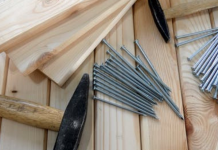There’s no “right” age to buy a home. But it’s smart to evaluate where you are in life as you decide whether or not to buy. A home purchase is the most significant investment in many peoples’ lives, and your status as a homeowner can help you or hurt you financially. Perhaps most importantly, it affects your quality of life.
When Should You Buy?
Buying a home can benefit you at any age, young or old, as long as the conditions are right. You might be ready to buy when, at a bare minimum, you:
- Can afford the monthly payments and other recurring expenses of home ownership
- Can get approved for a good loan (or better yet, pay cash)
- Plan to keep the home long enough to recoup transaction costs from buying and selling, as well as recover from any price declines (that’s assuming prices do recover)
- Can afford the risks, including surprise maintenance expenses or your home losing value in a weak market
- Are ready for the responsibility of owning and maintaining a home
None of that is meant to suggest that you’re irresponsible if you don’t buy a house by a certain age. Owning a home can be an expensive, time-consuming, and frustrating endeavour. Renting comes with its own set of challenges, but it’s a lot easier to pack up and leave when your only obligation is a six-month lease.
Reasons for Buying Young
If you want to buy when you’re young and you have the means to do so, there could be several potential benefits to getting an early start.
Build wealth: Assuming things go well, owning a home is a route to increasing your net worth. The “forced savings” of your monthly payments helps you build equity in the property, which you can use for another property or other needs later in life. Instead of giving 100 per cent of your monthly housing payment to a landlord, you “save” a portion of each payment.
Price appreciation: There is no guarantee that your home will gain value, but that is what happens in many cases — over the long term. Real estate can help hedge against inflation, assuming your property keeps pace with rising prices. Especially in strong markets with plenty of potential, price appreciation might contribute to your wealth accumulation. But it’s safest to buy a home as a “home” that you want to live in — not as an investment.
A place of your own: When you own a home, you’re in charge. You can customize the appearance or the layout to suit your style, make improvements that add value, and grow deeper roots in the community you live in. You don’t need permission from a landlord, and you don’t need to undo all of the great things you did to get a security deposit back.
Reasons for Waiting
If you’re not feeling rushed, that’s okay. Waiting to buy can pay off in several ways. Making a home your own and moving can be a pain, plus, you pay transaction costs every time you sell.
You may prefer to minimize the number of times you buy and sell. Every transaction takes time, emotional energy, and money.
More certainty: As you get older, you develop a clearer picture of your ideal home. The future is always uncertain, but you gain more insight into several factors as you age:
- Your work location, or your ability to work remotely
- Your income available for housing payments
- The size of your family, if any
- What you really need and what you’re willing to do without
Financial strength: Many (but not all) people earn more as they get older.3 As you enter your higher-earning years, it’s easier to buy exactly what you want — without making major sacrifices. Instead of being “house poor” and dealing with your property in your 20s and 30s, you can spend those years saving for a big down payment, traveling, or doing anything else you want. What’s more, you can build credit over those years, so you’re more likely to qualify for the best loan possible.
Things to Consider
Local markets: Local conditions may steer you toward buying or waiting. For example, if your monthly rent is extremely expensive, but purchase prices are quite reasonable, you may choose to buy sooner to keep your housing costs affordable.
Down payment: A down payment can help you minimize monthly payments and interest costs. You can also avoid paying extra private mortgage insurance (PMI) and reduce your risk by putting down at least 20%. But some loans allow you to buy with a small down payment, which makes it easier to buy at a young age. Evaluate the tradeoffs before you jump at the chance to buy with very little down.
Career: Will your income or location change over time? For example, some medical professionals start out with significant debt burdens, but they earn high incomes later in life. If a career change is imminent, figure out how that affects your decision to buy. Other careers range from relatively stable (a job with a university) to unpredictable (a job with a startup).
Logistical issues: When you own a home, you’re responsible for everything. If there’s a leak, you need to address it before it causes damage. Consider your willingness to take on those tasks. Will you do everything yourself (with the help of YouTube) or pay somebody? If you plan to hire out the work, do you have the funds, and is it easy to find reliable help in your area?
Even if you hire contractors, you’ll probably find yourself with less free time after you buy a home. You need to find help, schedule meetings, provide access to the property, and more.
Risk: Buying a home can be risky. You’re committed to repaying a huge loan, and you can suffer significant losses when you buy property. On the one hand, you may be in a position to take risks when you’re young because you have the rest of your life to recover, and you might not have anybody depending on you. On the other hand, it might become easier to absorb financial losses when you’re older.
At What Age Can You Buy a Home?
Most states require that you reach the age of majority (typically 18) to complete legal agreements. Buying real estate and getting a loan both require that you sign a contract. But you can potentially own property as a minor as long as somebody of legal age signs the contracts.
If you’re anxious to start early, get help from local experts who can explain your options and provide guidance on what’s best. You may be able to own property with an adult or have an adult transfer ownership under a custodial or trust arrangement. Other options may also exist, and a skilled real estate attorney can help you evaluate the alternatives.














